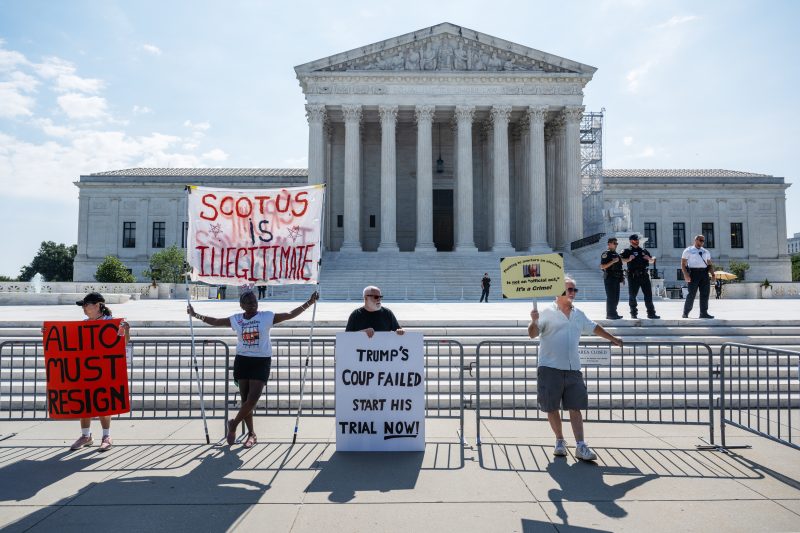Article:
The debate surrounding the structure and functioning of the Supreme Court has been a long-standing and polarizing issue in the United States. Recent developments have reignited calls for reforms to the nation’s highest court, with a significant portion of Americans voicing their support for change. The push for Supreme Court reforms has gained momentum in response to concerns about partisanship, the number of justices, and the overall balance of power in the judiciary.
One of the key areas of contention is the lifetime appointments of Supreme Court justices. Critics argue that lifetime tenure can lead to politicization of the court and diminish the accountability of its members. The idea of imposing term limits for justices has garnered support from both Democrats and Republicans, with proponents believing that this could help depoliticize the court and ensure a more diverse range of perspectives over time.
Another aspect of reform that has gained traction is the proposal to expand the number of justices on the Supreme Court. This idea, commonly referred to as court-packing, has been met with mixed reactions. While some argue that expanding the court would help rebalance it ideologically and address concerns about the influence of a heavily conservative or liberal bench, others view it as a dangerous precedent that could undermine the institution’s independence.
Furthermore, the political ideologies of the sitting Supreme Court justices have come under scrutiny, particularly in light of recent high-profile rulings. The perception that the court is increasingly divided along partisan lines has fueled calls for reforms aimed at promoting greater ideological diversity and reducing the influence of a single political party.
Support for Supreme Court reforms cuts across party lines, with a majority of Democrats, Republicans, and independents expressing the need for change. According to recent polls, a significant percentage of Americans believe that the Supreme Court should be reformed in some way to better serve the interests of the people and uphold the principles of justice and fairness.
In conclusion, the issue of Supreme Court reforms has become a focal point of debate in the United States, with a growing consensus among Americans that changes are needed to ensure the court’s effectiveness and integrity. While opinions differ on the specifics of reform, it is clear that there is momentum behind the push for a more transparent, balanced, and accountable Supreme Court that reflects the values and aspirations of the American people.

